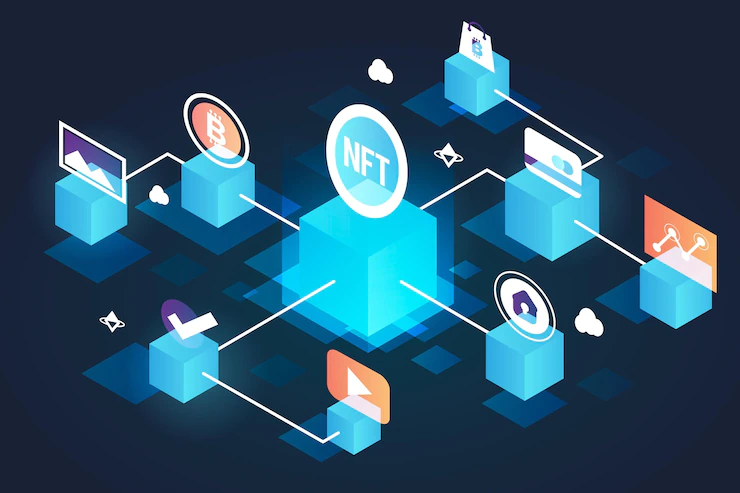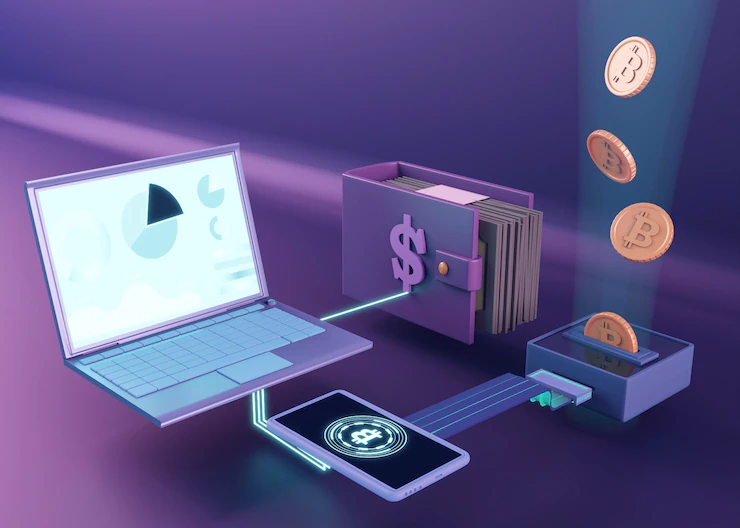Bitcoin’s blockchain technology has rapidly evolved into a versatile platform with a wide range of potential uses beyond cryptocurrency. In this blog post, we will explore the concept of blockchain and its applications beyond cryptocurrency.
What is Blockchain?
A network of computers uses a decentralized, digital ledger called Blockchain to record transactions. Each block in the chain contains a number of transactions, and once a block is added to the chain, the data it contains cannot be altered. This makes blockchain an immutable and secure technology that is resistant to tampering and hacking.
Blockchain technology is based on the principles of decentralization, transparency, and immutability, making it a powerful tool for a wide range of applications beyond cryptocurrency.
Applications of Blockchain
Blockchain has the potential to revolutionize a wide range of industries and applications, including:
Supply Chain Management
A supply chain can use blockchain to create a transparent and immutable record of all the transactions that take place within it, from the origin of the product to the point of sale. This can help to improve efficiency, reduce costs, and increase transparency and accountability. By using blockchain, companies can track the origin, movement, and authenticity of products in real-time, thus reducing the risk of fraud and increasing consumer trust in the products.
Digital Identity
Blockchain can be used to create a secure and decentralized system for storing and managing digital identities. This can help to protect individuals’ personal information and prevent identity theft. Various purposes such as voting, banking, and e-commerce can use blockchain-based digital identities to provide a secure and tamper-proof way of verifying identities.
Smart Contracts
Users can utilize Blockchain to create smart contracts, which are self-executing contracts with the terms of the agreement written into code. Smart contracts enable the automation of a wide range of processes, including real estate transactions, insurance claims, and voting systems. This eliminates the need for intermediaries and reduces the time and costs associated with these processes.
Healthcare
Blockchain can be used to create a secure and decentralized system for storing and sharing medical records. This can help to improve the efficiency of healthcare systems, reduce costs, and improve patient care. Blockchain-based medical records provide a secure and tamper-proof way of storing and sharing patient data among different healthcare providers, thus improving patient care, and reducing the risk of errors.
Gaming
Blockchain technology enables players to purchase, sell, and exchange virtual items, while also establishing decentralized gaming platforms. These cutting-edge games make use of the Blockchain’s transparency and immutability to make sure that players can confirm the gaming experience is fair and carry out safe transactions for virtual assets.
Art and Intellectual Property
Users can use Blockchain to create a transparent and immutable record of ownership and provenance for works of art and other intellectual property. This can help to reduce fraud and ensure that creators are properly compensated for their work. Blockchain-based art marketplaces provide a secure and tamper-proof way of buying and selling artworks, and of verifying their authenticity and provenance.
Challenges and Limitations
The current blockchain technology limits its ability to handle a large number of transactions per second. Furthermore, blockchain technology lacks standardization, which makes it difficult for businesses to integrate it into their existing systems. The lack of skilled professionals and knowledge can also make it difficult for businesses to implement blockchain technology. Moreover, many countries have yet to develop clear guidelines and regulations for the use of blockchain technology due to an uncertain regulatory environment. This can make it difficult for businesses to operate and comply with the law.
Conclusion
In conclusion, blockchain technology has the potential to revolutionize a wide range of industries and applications beyond cryptocurrency. Its decentralized, transparent, and unchangeable characteristics make it a valuable asset in these fields. However, to fully realize its potential, blockchain technology needs to address scalability, standardization and regulatory challenges.




